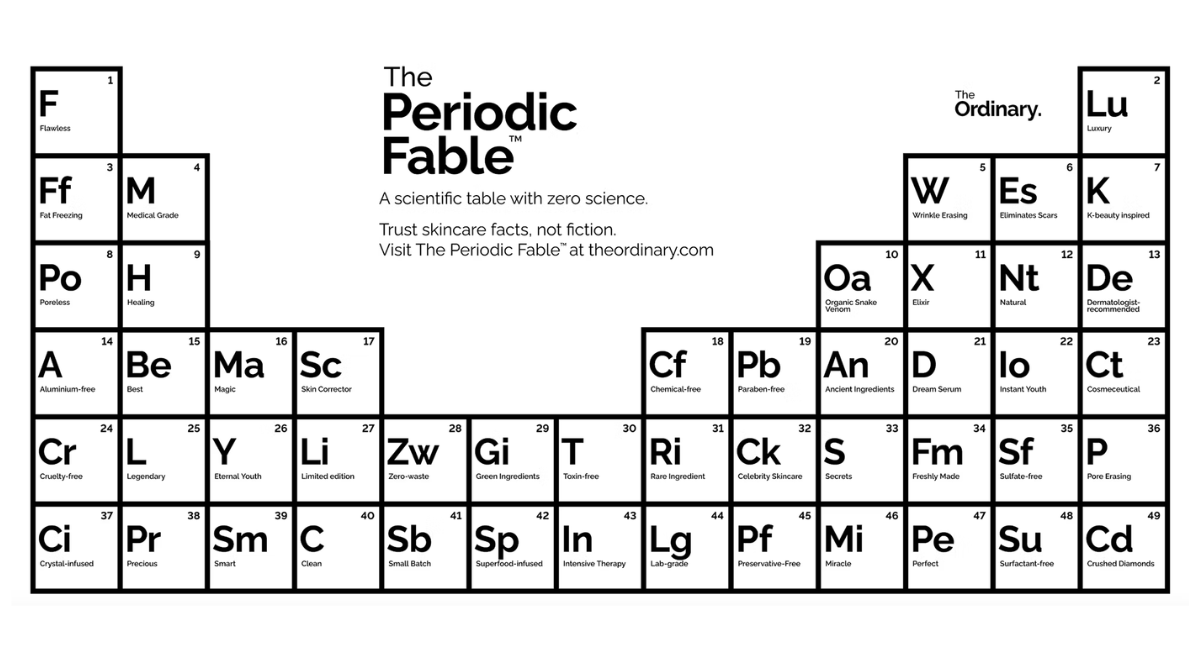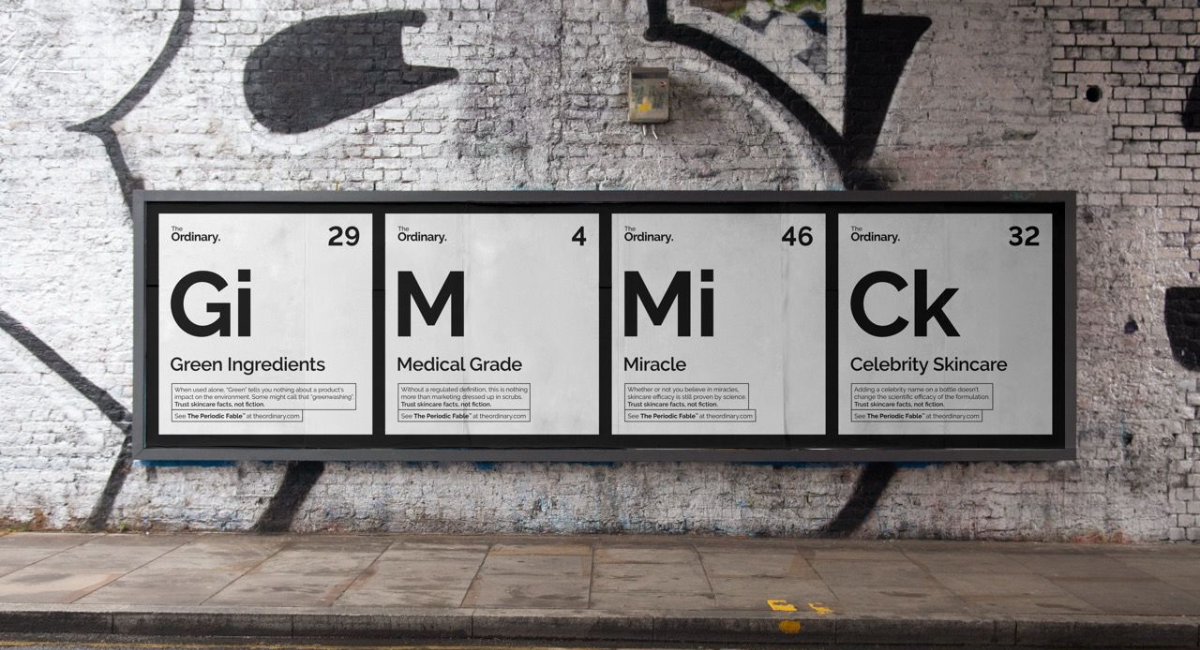Work Of The Week: The Ordinary’s 'Periodic Fable' holds a mirror up to the beauty industry

In an era of anti-advertising advertising, The Ordinary’s recent work, created by Uncommon, cleverly illustrates how the beauty industry has become its own case study.
Speaking about its origin, planning director Marco Del Valle says, “It was born out of The Ordinary’s mission to bring universal access to quality skincare. Particularly at a time when ‘truth’ feels increasingly irrelevant and so much scientific research is either hidden, under paywalls or inaccessible to a regular audience, it’s much easier for misinformation to spread.”
Because of this, it sits not just as another brand film – it’s a creative autopsy of how marketing has manipulated language, pseudo-science, and aesthetics in the pursuit of “miracle” results.
In that sense, it’s an example of a brand weaponising honesty not just as a positioning, but as its creative act.
The campaign dismantles beauty’s own language through metaphor.
A reimagined periodic table where scientific symbols are replaced by skincare buzzwords.
Each element stands for a marketing trope: the mysterious compound, the mystical promise, the cultural shorthand of progress. It’s both absurd and familiar.
In the hero film, we see a hypnotic classroom of ‘students’ repeating beauty rituals in unison. Ice rolling. Slathering. Peeling. Pinning loose skin back with face tape. All trapped uncomfortably and rigidly in the choreography of beauty conformity and expectations.
The visuals are surreal and clinical, halfway between a lab and a cult.
Think MK Ultra (the conspiracy), but the smooth skin.
The effect is unsettling, intelligent, and perfectly on brand.
For The Ordinary, whose entire existence has been built around radical transparency, this is more than storytelling. It’s self-actualisation.

The science of selling without selling
The brilliance of The Periodic Fable lies in its duality. It’s both a critique of marketing and a masterclass in it.
By turning the language of science against the industry that abuses it, Uncommon has given The Ordinary a way to stand apart without ever claiming superiority.
This is advertising for an audience that’s sick of advertising.
It speaks to a generation fluent in greenwashing, influencer hyperbole, and ingredient inflation.
Consumers no longer want to be told what’s clean or pure, they want to know what’s real.
Beauty’s big wake-up call
Culturally, this taps into something wider: a collective fatigue with overpromise.
Beauty has always sold dreams. The Ordinary sells data. That’s what makes this work important. It doesn’t just say it’s different; it shows it.
A campaign with confidence in minimalism, no glow-up, no sermon, no evangelical tone, no impossible before-and-afters. Just an intelligent provocation: maybe the real glow-up is intellectual?
But this isn’t beauty’s first wake-up call.
It’s all feels very Dove-coded, but with a harder, sharper edge. Dove’s Real Beauty campaign, launched in 2004, called time on airbrushed fantasy, shifting the conversation from aspiration to authenticity. It proved there was commercial power in honesty.
Yet even Dove, for all its sincerity, faced scrutiny – accused of hypocrisy, of quietly retouching its “real women”. It showed that the moment you claim the moral high ground, people start checking for cracks in the marble.
The Ordinary faces a similar paradox.
By declaring itself the antidote to beauty disillusion, it invites interrogation – walking the fine line between calling out the game and playing it.
For some, its cerebral tone may feel alienating; too self-aware, too meta. And, of course, once you position yourself as the truth-teller, you invite every fact-checker on the internet to test your purity.
Still, that’s the cost of creative conviction.

When critique becomes craft
The deeper lesson here is creative.
The Periodic Fable shows how brands can build equity not by adding new layers of narrative, but by peeling them away. It’s a case study in how to turn critique into craft.
It also poses a challenge to the rest of the industry:
Can your brand critique its own category without sounding cynical?
Can you create education that entertains?
Can you turn simplicity into theatre?
Uncommon and The Ordinary have managed all three. They’ve transformed a skincare brand into a cultural commentator.
If you enjoyed this article, you can subscribe for free to our weekly email alert and receive a regular curation of the best creative campaigns by creatives themselves.
Published on:




